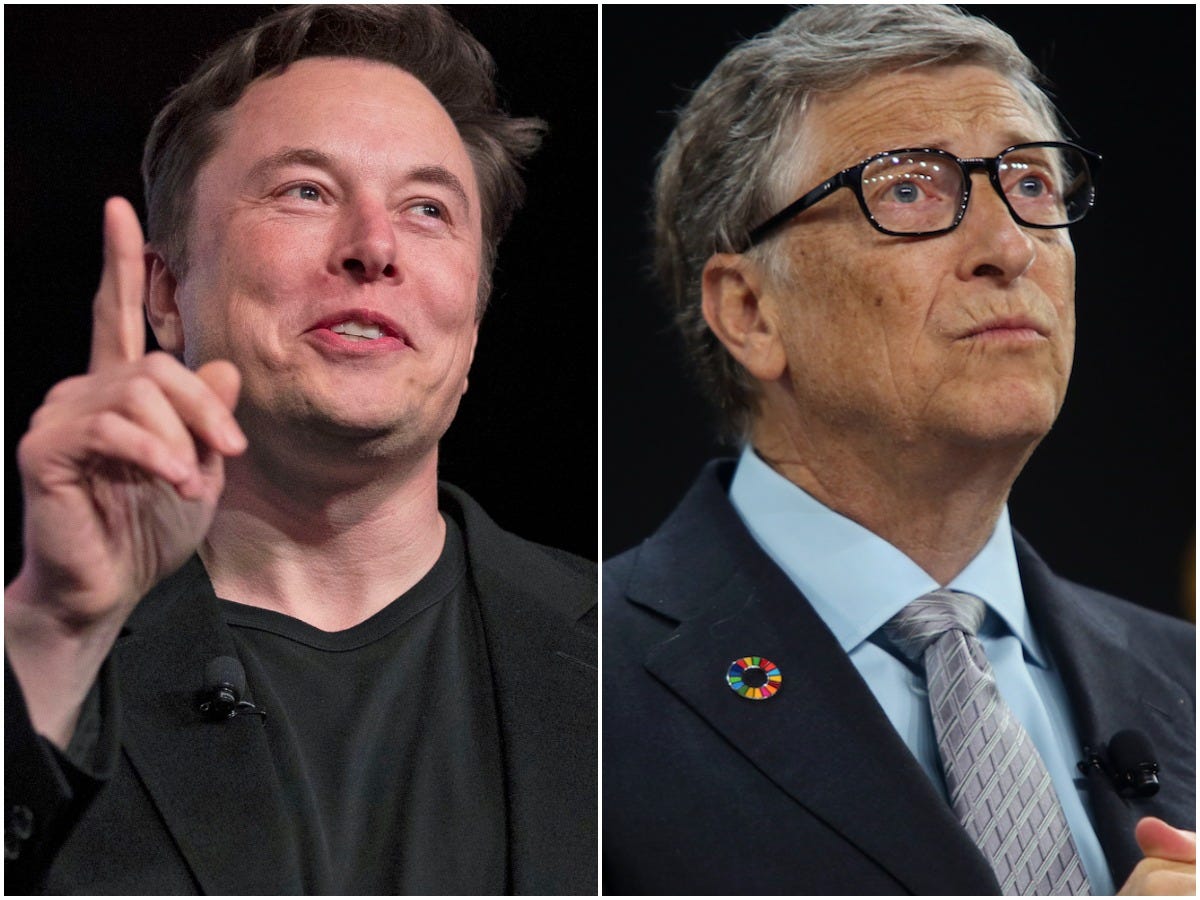- Bill Gates called Elon Musk’s comments about the coronavirus pandemic “outrageous” when speaking with CNBC.
- “Elon’s positioning is to maintain a high level of outrageous comments,” the Microsoft cofounder said during the interview.
- Musk has cast doubt on the severity of the virus on Twitter and has rallied against shelter-in-place orders meant to curb its spread.
- He tweeted in June that there were a lot of “false positives messing up the numbers.”
- He also tweeted that “kids are essentially immune” to the virus in March, even though the Mayo Clinic and Harvard Medical School both say that children of all ages can become infected with COVID-19.
- Gates also commented on the proliferation of misinformation on social media.
- Visit Business Insider’s homepage for more stories.
Microsoft cofounder and philanthropist Bill Gates thinks Tesla CEO Elon Musk should stick to his areas of expertise instead of spreading falsehoods about the coronavirus.
When appearing on CNBC’s “Squawk Box,” Gates called Musk’s comments about COVID-19 “outrageous.”
“Elon’s positioning is to maintain a high level of outrageous comments,” Gates said to CNBC. “He’s not much involved in vaccines. He makes a great electric car. And his rockets work well. So he’s allowed to say these things. I hope that he doesn’t confuse areas he’s not involved in too much.”
Gates’ comments come after the billionaire Tesla CEO has spoken misleadingly about COVID-19, spread falsehoods, and expressed doubt over the severity of the pandemic in the United States even as cases have increased across the nation.
"There are a lot of C19 false positives messing up the numbers," Musk tweeted on June 30. "Even tests with 5% false positive rate (in *field,* not lab) would show up as ~17 million fake C19 cases even if there were actually none."
Around the time that tweet was published, 48,000 new positive COVID-19 cases were announced in the US, breaking a single-day record at that time, The New York Times reported. More than 4.3 million people have been infected with COVID-19 in the US while 148,400 have died as of July 28, according to The Times' analysis.
It's not the only time Musk has been vocal about the way the US is handling the pandemic. In April, he called shelter-in-place measures meant to curb the virus' spread "fascist"during a Tesla earnings call in May.
"Frankly, I would call it forcible imprisoning of people in their homes against all of, their constitutional rights, in my opinion," Musk said. "It's breaking people's freedoms in ways that are horrible and wrong and not why they came to America or built this country."
He also tweeted in March the false statement that "kids are essentially immune" to the coronavirus, a tweet that also drew controversy for Twitter's decision not to take any action against it.
"Kids are essentially immune, but elderly with existing conditions are vulnerable," Musk tweeted on March 19. "Family gatherings with close contact between kids & grandparents probably most risky."
Both the Mayo Clinic and Harvard Medical School say that children can become infected with COVID-19, though in many cases children can experience milder symptoms. John Hopkins Medicine cites a study in Pediatrics examining COVID-19 in Chinese children, which found that 90% of those who tested positive experienced few or no symptoms. Another severe illness, Multisystem Inflammatory Disease, however appears to also be linked to children who contract the coronavirus.
Musk also praised Texas for allowing retailers to open in late April, even though the state later became a hotspot for coronavirus cases.
"Bravo Texas!" he tweeted along with a link to a Texas Tribune story on April 29 about restaurants, stores, and other businesses being allowed to reopen. That tweet came after Tesla had to scrap its plans to bring employees back to work at its Fremont facility, according to CNBC.
Gates also weighed in on social media during the interview, commenting on how rapidly misinformation can spread on social platforms.
"When you let people communicate, you have to deal with the fact that certain incorrect things that are very titillating can spread very rapidly compared to the truth," he told CNBC. "And we've always seen that with vaccines."

